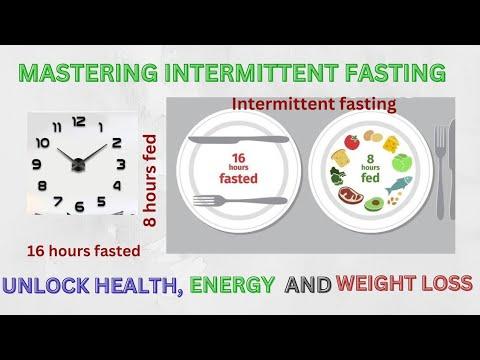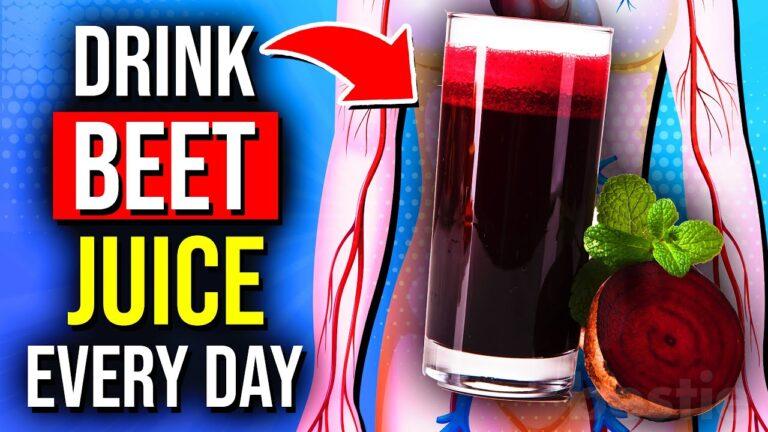Losing weight and shrinking excess belly fat can be a long and exhausting process to actually see results. But looking at a diet that keeps you full and satisfied, while also contributing to shedding some extra pounds sounds like the perfect place to start for long-term changes.
Including more protein in one’s diet can foster weight loss in a number of ways. When combined with exercise, a high intake of protein helps build more lean muscle, and “lean muscle helps to burn more calories throughout the day,” Medical News Today reports.
However, high protein foods can also “help with weight loss by decreasing hunger and promoting a sense of fullness,” explains Brittany Dunn, MS, RDN, CD, who specializes in sports nutrition and has experience working with and educating athletes through Dunn Nutrition. High protein diets are extremely effective in weight loss, because “they preserve muscle mass and prevent decreased metabolism,” she says.
A common misconception when it comes to high protein meals, is that many people want to overcompensate with the intention of losing more body fat, explains Dunn. Many people believe that “food sources of protein are not enough to contribute to a high protein meal plan and that supplementation is necessary,” when in reality, “whole foods can provide enough and oftentimes, even more protein than expected,” she says.
You should be eating “between 1.6 and 2.2 grams of protein per kilogram of body weight” on a daily basis, if you’re working towards overall weight loss, according to the National Academy of Sports Medicine (NASM).
“Very few Americans consume inadequate amounts of protein,” says Dunn. “However, if you do find yourself struggling to achieve enough protein in your diet, here are some tips: thicken sauces or soups with blended legumes (such as lentils) or [layer] tofu and sweet potato curry over steamed veggies.”
To look into the nitty-gritty of what foods pack the best protein punch, here are six high-protein foods to help you reach your weight loss goals and shrink that waist! Then, for more weight loss tips, here are the Eating Habits to Lose Abdominal Fat As You Age, Say Dietitians.
What may seem like an obvious choice, choosing specific meats as a source of protein in your diet can make all the difference when it comes to shedding fat. Lean meats in particular—such as skinless chicken, turkey, pork loin, bison, white flesh fish, salmon, and shrimp—will contain a high level of protein with low calories, healthy fats, and more often than not, less processed ingredients compared to red meat, Medical News Today explains.
When prioritizing eating lean meats, you can “limit the amount of saturated fat [you] consume to less than 10% of calories per day,” according to the U.S. Department of Agriculture (USDA) and the Dietary Guidelines for Americans.
What does this mean in terms of weight loss? When you consume more high volume foods full of nutrients, like lean meat that are lower in calories (generally), you don’t have to fill up on a larger portion to feel full and you will stay full for longer, explains Mayo Clinic.
Eating more fish like salmon and shrimp helps contribute sources of iodine and essential omega-3 fatty acids to filter good thyroid health and stable metabolism. Both of which support overall weight loss by helping keep overeating under control and also sustain fullness.
Another piece of the puzzle is how you cook your lean meats can help contribute to fat loss. To continue trimming excess weight, The Community Health Center (CHN) says “prepare your meat [by] grilling, broiling, or roasting to lower the amount of saturated fat.”
If you love a classic Italian Wedding soup, Dunn recommends subbing in some turkey meatballs to give you a leaner protein power boost. You also could also spice up your shrimp with a shrimp fajita salad or curled up in a wrap, she says.
For more meat options to choose from, take a look at The Best Forms of Lean Protein You Can Eat
Sign up for our newsletter!
A plant-based source of protein that you can throw into just about any meal for an extra boost — chickpeas.
“Chickpeas are what’s known as a complete protein because they contain all nine essential amino acids,” which play a key role in metabolism and body function, according to Cleveland Clinic. The high protein and fiber contents of chickpeas help to keep you fuller longer, which is important if you’re trying to lose weight and maintain it.
Chickpeas are also a great choice because they are considered a legume, which has the nutrient value of high protein foods as well as vegetables, according to a review in Nutrients. The review also points out that the vast nutrients in chickpeas have major effects on losing weight by controlling the body’s glucose and insulin responses. Both of which play their part in easing digestion and slowing down the absorption of carbohydrates, so you’re full of energy while consuming a low-calorie food.
One way to incorporate chickpeas more into your diet is by adding a “legume based hummus on sandwiches and wraps,” says Dunn.
Whole-grain foods are another group that has huge rewards in terms of protein. Quinoa for example—can act as a carb-like substitute for rice or pasta—is considered a complete protein, which is made up of the nine of the essential amino acids your body needs. The plant-based protein source will easily fill you up and support your fat loss goals, by contributing to building more muscle and a strong metabolism.
Quercetin and kaempferol, the two flavonoid plant compounds in quinoa, also help with weight loss by protecting your gut cells and supporting strong metabolites. Having strong metabolites will help fuel your metabolism to function efficiently in turning food into energy versus the alternative (fat). But, be careful what you pair with this protein-packed food because combining quinoa with high calorie and fatty foods could hinder your fat loss journey more than support it.
There’s nothing wrong with enjoying a healthy carb with high protein content, especially when you’re trying to lose fat. Black beans are a complex carbohydrate that is gluten-free and plant-based and sources both high levels of protein and healthy fiber. One study saw major weight loss results after including beans and legumes as a leading source of protein over the span of eight weeks.
The subjects of the study found they had lost significant body fat, reduced their waist circumference, and lowered their blood pressure and total cholesterol. Beans—especially black beans—can help lower the body’s leptin levels, also known as the hormone that regulates the appetite. With a controlled appetite and a body full of healthy protein and fibers, you have a greater chance of losing more fat over time.
Dunn recommends filling up on a protein-packed burrito bowl with black beans, grilled chicken breast, grilled veggies, and salsa. Another meal to help implement more beans in your diet is our Vegetarian Black Bean Omelet Recipe.
Low-fat dairy products
Dairy products don’t have the best reputation in supplementing a solid fat loss journey, but for many people consuming more dairy on a daily basis can potentially accelerate weight loss. Turning to fat-free milk, certain cheeses (such as cottage cheese), and low-fat Greek yogurt, can support your body’s need for natural dairy-based nutrients (such as calcium) and a high source of protein.
The Journal of the North American Association for the Study of Obesity conducted research on participants in a reduced-calorie diet consuming three to four servings of dairy (in different types) a day, over the span of 24 weeks and many lost a great percentage of total body weight.
“It’s clear from our research that the unique combination of essential nutrients in dairy foods has a powerful, positive impact on metabolism and weight loss,” said lead researcher Dr. Michael Zemel, Ph.D., the director of the UT Nutrition Institute, in the journal review.
The study found that the calcium levels paired with the reasonable protein properties in dairy products contribute greatly to weight loss as they speed up the body’s metabolism and improve natural energy storage.
Looking to sneak in extra protein? Try blending up a well-rounded smoothie with your choice of greek yogurt, low-fat milk (or a high protein non-dairy substitute), fruit, and veggies, Dunn says. If you’re not a big smoothie fan, she also recommends topping Greek yogurt with seeds/nuts, nut butter, and hemp hearts.
Whey protein, in its original form, is mainly found in dairy products like milk and cheese. It’s created during the curdling process of making milk and cheese and contains a total of eight protein groups and nine essential amino acids, explains Cleveland Clinic. The most important group of whey, in terms of fat loss, is the branched chain of amino acids (BCAA’s)—leucine, isoleucine, and valine—which foster significant muscle growth.
It’s highly recommended to consume whey protein for fat loss because it supplements more lean muscle throughout the body (similar to meat), which burns calories at a higher rate than body fat, says Dunn.
There’s a reason why whey protein is one of the most commonly used and researched protein powders on the market. While protein powder isn’t necessarily a food, it’s great for on the go and can be blended or mixed into so many staple meals and drinks that are already part of your diet (plus, the wide variety of flavors can add even more taste to your food intake).
This content was originally published here.




















